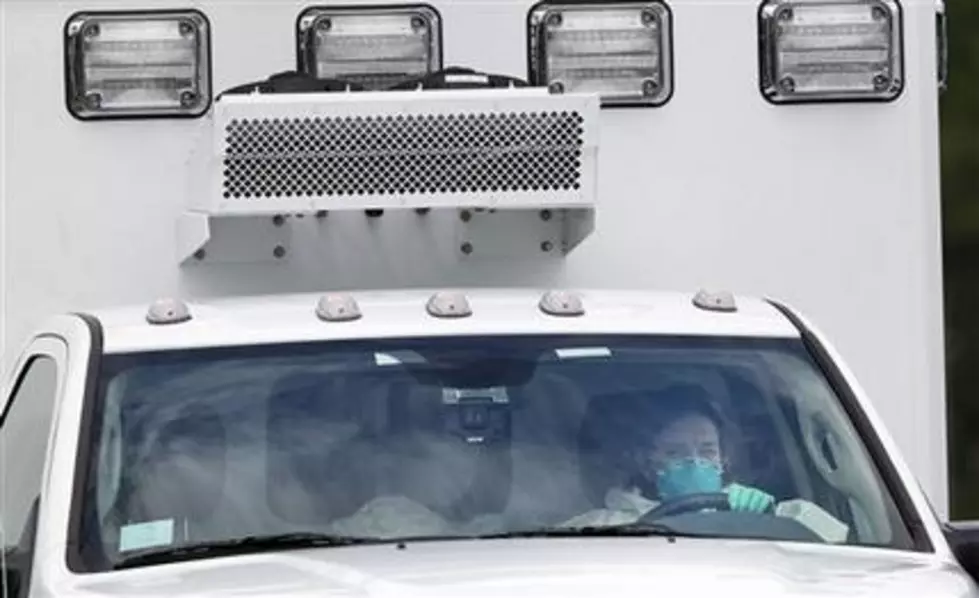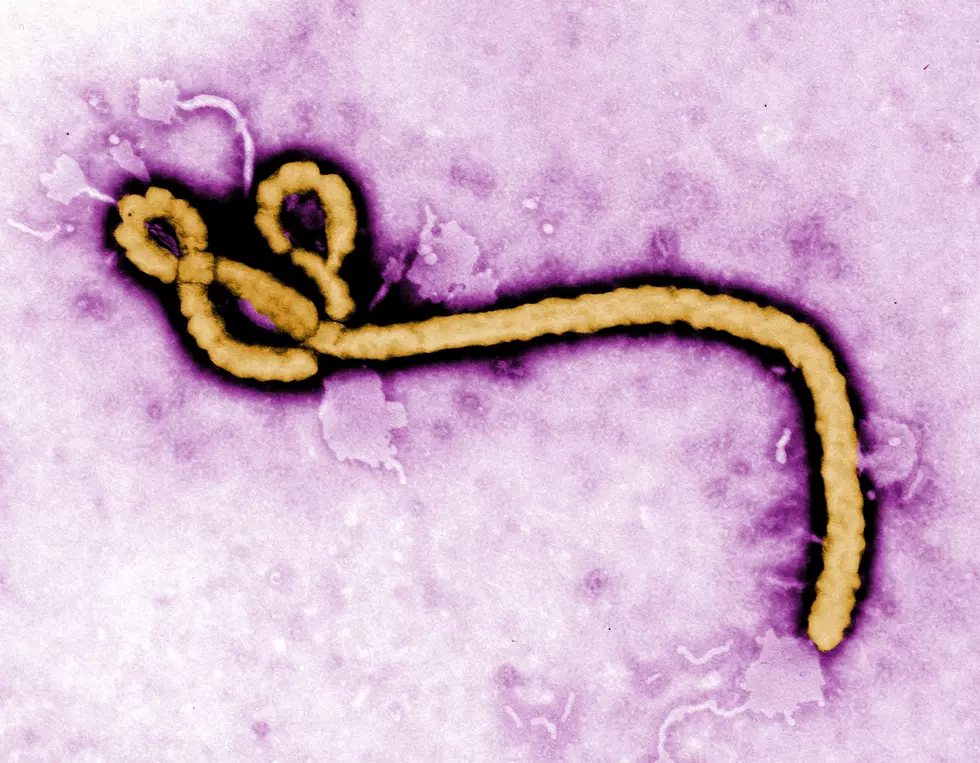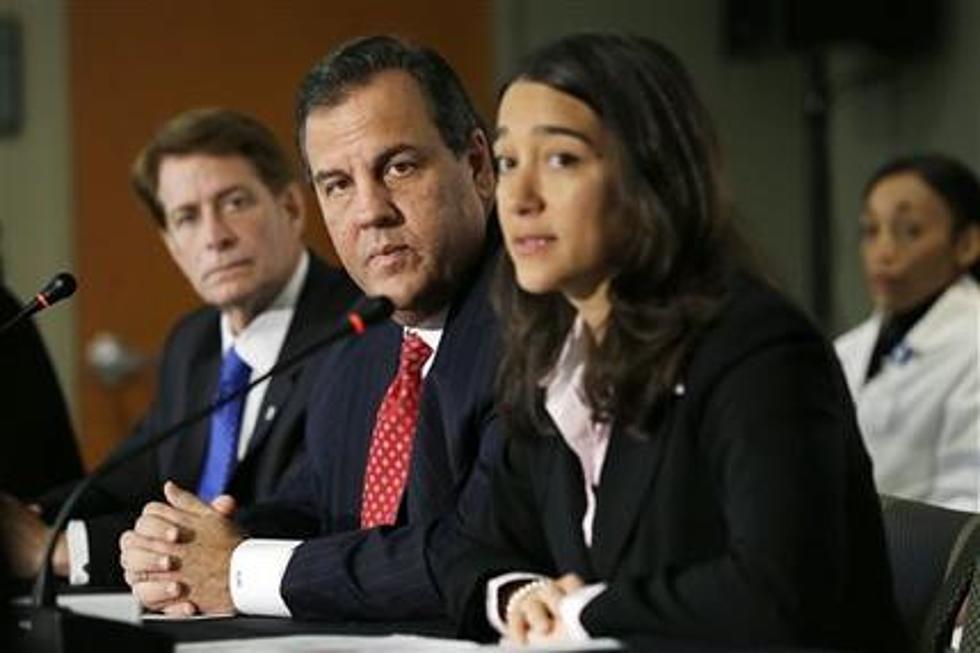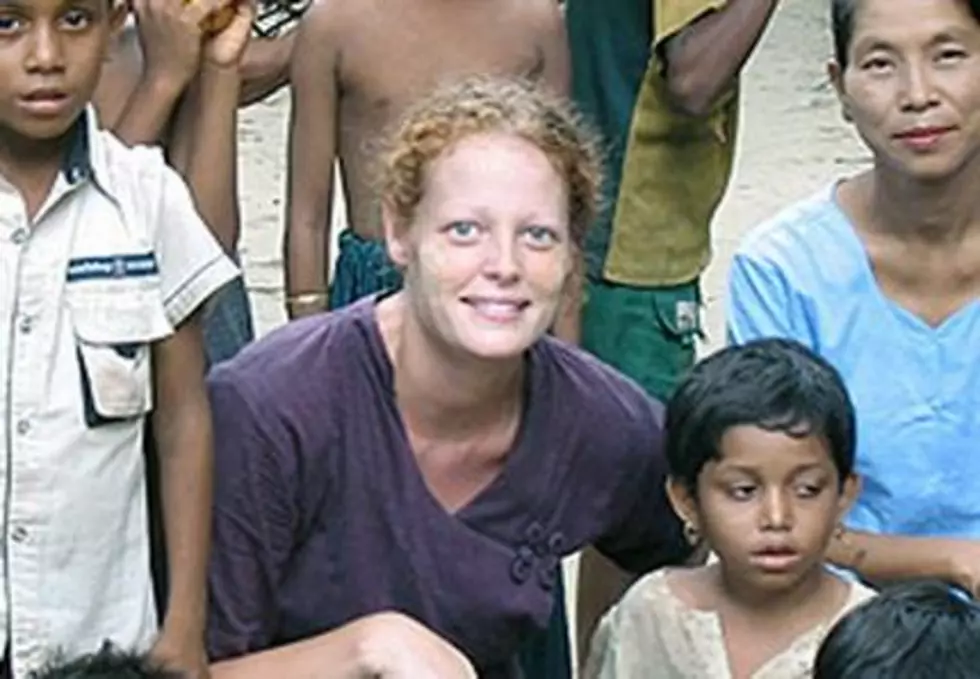
CDC head says US doctor with Ebola shows improvement
The director of the Centers for Disease Control and Prevention says the condition of the American doctor stricken with Ebola seems to have improved from earlier reports.
Dr. Thomas Frieden tells NBC it was encouraging to see Dr. Kent Brantly walk out of the ambulance unassisted when he arrived at Atlanta's Emory University Hospital from Africa on Saturday.
Frieden said he understands the public's concerns about Ebola, and the public health role is to ensure that the infection is not spread.
Brantly's arrival marks the first time anyone infected with incurable Ebola, considered one of the world's deadliest diseases, has been brought into the country. A second American aid worker infected with the virus was expected to arrive within a couple days.
A private plane outfitted with a special, portable tent designed for transporting patients with highly infectious diseases arrived at Dobbins Air Reserve Base Saturday, a spokesman Lt. Col. James Wilson confirmed.
An ambulance from Atlanta's Grady Memorial Hospital left the base in Marietta, Georgia, shortly after the Gulfstream landed and drove the 15 miles or so toward Emory University Hospital where Brantly and another aid worker will be treated.
Once at the hospital, one person, believed to be Brantly, in white protective clothing from head to toe climbed down from the back of the ambulance and a second person in the same type of hazmat-looking suit appeared to take his gloved hands and guide him toward a building at Emory, which is located just down a hill from the Centers for Disease Control and Prevention.
U.S. officials are confident the patients with the virus can be treated without putting the public in any danger.
The ambulance with red markings was flanked by a few SUVs and police car for the short trip to the hospital along a wide-open Interstate with no traffic.
The second patient, Nancy Writebol, will follow a few days later, the hospital has said. The two seriously Americans worked at a hospital in Liberia, one of the three West Africa countries hit by the largest Ebola outbreak in history.
Dr. Jay Varkey, an infectious disease specialist at Emory who will be involved in Brantly's care, said the hospital's isolation unit is well-equipped to handle patients with diseases that are even more infectious than Ebola.
The specialized unit at Emory University Hospital was opened a dozen years ago to care for federal health workers exposed to some of the world's most dangerous germs. The unit was used for treating at least one SARS patient in 2005. Unlike Ebola, SARS - like the flu - is an airborne virus and can spread easily when an infected person coughs or sneezes.
Health experts say a specialized isolation unit is not needed for treating an Ebola patient. Standard rigorous infection control measures should work at any hospital.
"Ebola is only transmitted through blood and bodily fluids," Varkey said. "Unlike the flu, like influenza, which we deal with every winter, Ebola cannot be spread thorugh the air."
Ebola begins with fever, headache and weakness and can escalate to vomiting, diarrhea and kidney and liver problems. In some cases, patients bleed both internally and externally. The current outbreak in Liberia, Guinea and Sierra Leone has sickened more than 1,300 people and killed more than 700 this year.
The CDC chief said old-fashioned practices are required to stop the spread of Ebola in West Africa. That means finding the patients and their contacts, making sure they're treated, educating the public and doing rigorous infection control in hospitals.
Dr. Philip Brachman, an Emory University public health specialist who for many years headed the CDC's disease detectives program, said Friday that since there is no cure, medical workers will try any modern therapy that can be done, such as better monitoring of fluids, electrolytes and vital signs.
"That's all we can do for such a patient. We can make them feel comfortable" and let the body try to beat back the virus, he said.
It's not known how Brantly was infected, but health care workers are among the most vulnerable because of their close contact with sick patients.
Brantly's wife, Amber, and their two children, 3 and 5, had left Liberia for a wedding in the U.S. just days before her husband fell ill and quarantined himself. Last week, in a statement, she said they were fine and were staying with family in Abilene, Texas.
Brantly went to medical school at Indiana University and did a four-year residency at John Peter Smith Hospital in Fort Worth, Texas. Last October, he began a two-year fellowship with Samaritan's Purse to serve as a general practitioner at a mission hospital outside the Liberia capital of Monrovia. He directed the hospital's Ebola clinic when the outbreak reached that West Africa nation.
The Emory hospital unit is located just down a hill from the Centers for Disease Control and Prevention. It has its own laboratory equipment so samples don't have to be sent to the main hospital lab. Located on the ground floor, it's carefully separated from other patient areas, said Dr. Eileen Farnon, a Temple University doctor who formerly worked at the CDC and led teams investigating past Ebola outbreaks in Africa.
Brantly and Writebol worked for U.S. aid groups Samaritan's Purse and SIM at a Liberian hospital that treated Ebola patients. Late last week, the North Carolina-based Samaritan's Purse said Brantly, 33, had been diagnosed with Ebola. Then, Writebol's infection was disclosed.
The government is working to ensure that any Ebola-related evacuations "are carried out safely, thereby protecting the patient and the American public," State Department spokeswoman Marie Harf said in a statement released Friday.
The virus is spread through direct contact with blood, urine, saliva and other bodily fluids from an infected person. It is not spread through the air so it is not as infectious as a germ like the flu.
There's no specific treatment for Ebola so doctors try to ease the symptoms, which include fever, headache, vomiting and diarrhea. Some cases suffer severe bleeding.
"If there's any modern therapy that can be done," such as better monitoring of fluids, electrolytes and vital signs, workers will be able to do it better in this safe environment, said Brachman. "That's all we can do for such a patient. We can make them feel comfortable" and let the body try to beat back the virus, he said.
Emory's Ribner, one of the doctors who will be seeing the Ebola patients, stressed that safety precautions will be taken by staff.
"I have no concerns about even my personal health or the health of the other health care workers who will be working in that area," Ribner said.
More From New Jersey 101.5 FM









